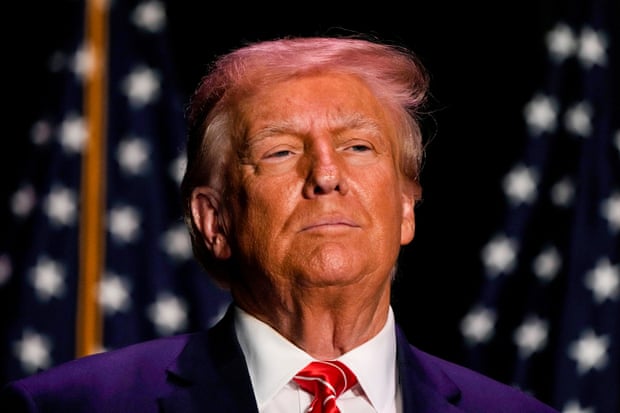
A federal appeals court on Tuesday dismissed Donald Trump's assertion of immunity from criminal prosecution in connection with charges related to his alleged plot to overturn the 2020 election results. The three-judge panel at the U.S. Court of Appeals for the DC Circuit declined to endorse an expansive interpretation of executive power, rejecting Trump's claim that his actions as president shielded him from criminal charges.
The unanimous opinion from the panel also refuted Trump's position that he could only be prosecuted if convicted in a Senate impeachment trial first. The court stated, "We cannot accept former President Trump’s claim that a President has unbounded authority to commit crimes that would neutralize the most fundamental check on executive power."
The opinion emphasized that accepting Trump's stance would undermine the system of separated powers by placing the President beyond the reach of all three branches. The court firmly stated that the office of the Presidency does not grant former occupants immunity from the law indefinitely.
The panel granted Trump until February 12 to inform the DC Circuit whether he intends to seek a stay of the decision by appealing to the U.S. Supreme Court. If an appeal is pursued, the case would not return to U.S. District Judge Tanya Chutkan until the Supreme Court issues a final decision.
Last year, Trump filed a motion to dismiss the federal election interference case, alleging he sought to overturn the 2020 election results. The trial judge rejected the motion, prompting Trump's appeal to the DC Circuit. The case had previously been referred to the U.S. Supreme Court, which returned it to the appeals court.
Trump's legal strategy to dismiss charges based on presidential immunity was seen as an attempt to delay the trial. The court's rejection is consequential, as it diminishes the likelihood of Trump successfully postponing the trial, allowing him to appoint a loyalist as attorney general if he were to win the 2024 presidential election.
Despite the legal setback, Trump's overarching strategy remains focused on seeking delays, potentially framing charges as political in nature if they coincide with the election, according to sources familiar with his approach.
